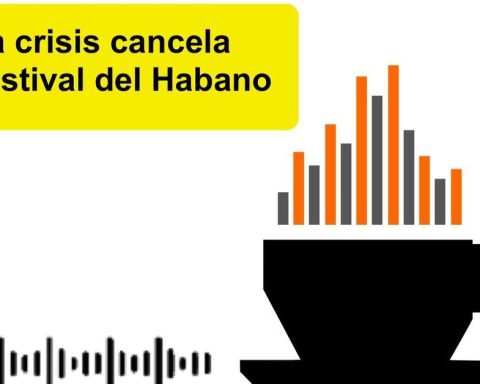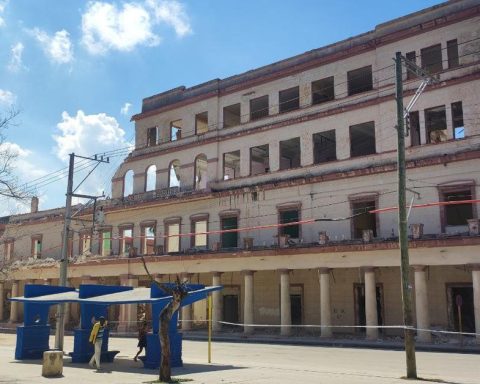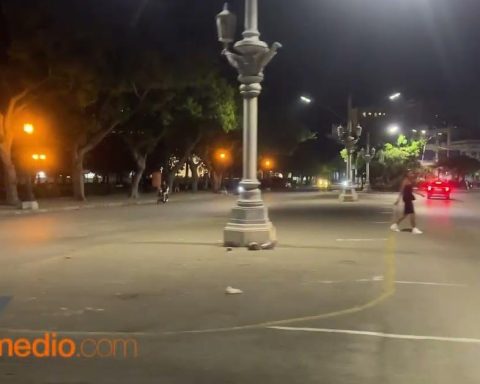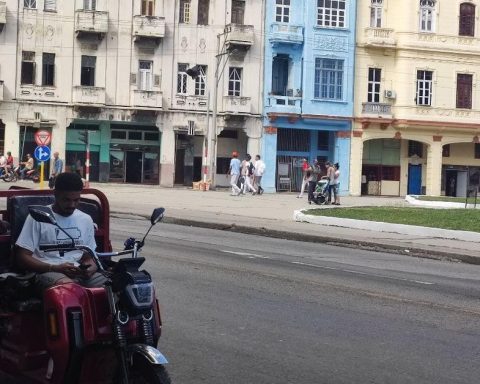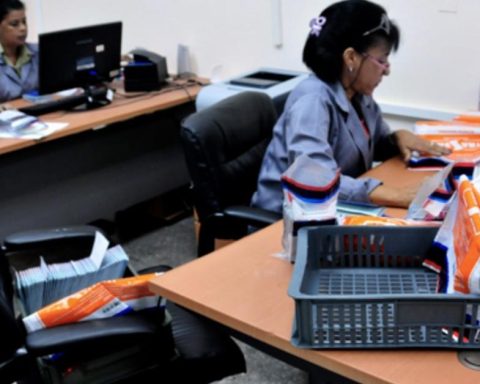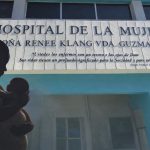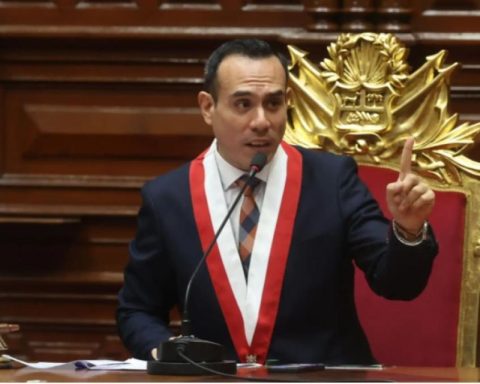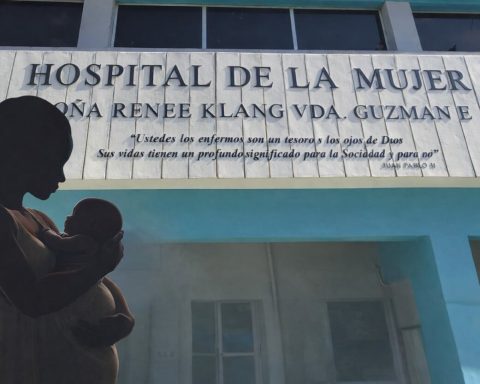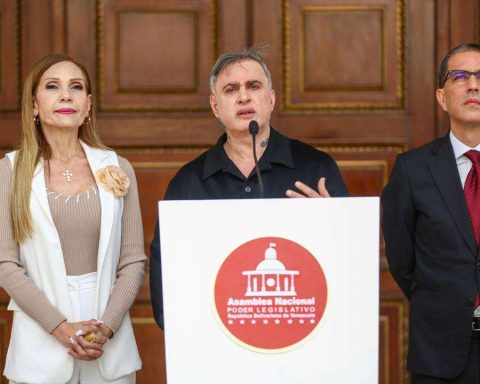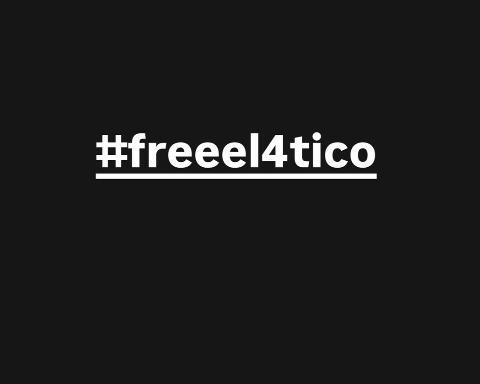At the gates of the Camajuaní Collective Law Firm, located on Agramonte Street, between Maceo and General Naya, Janet, an elementary school teacher, has just been brought to Santa Clara after four months of waiting. “Yesterday was the last day we received documents for legalization. No more will be done until further notice,” one of the institution’s lawyers informed him.
After almost half a year of wrestling with the institutions, Janet had managed to correct the errors in a document where her parents’ names were misspelled, and obtain three birth registrations and a marriage certificate. Having overcome the exhaustion that acquiring these papers meant, the firm’s refusal augurs new queues.
Processing and legalizing documents is one of the most oppressive processes that Cubans face. After a viacrucis of bribes, rally and long lines, there is no guarantee that a birth certificate or university degree will be ready in time to take a trip or enroll in a foreign university. From buying a stamp to signing an official, there is only one constant: the desperation to get out of the bureaucratic maze.
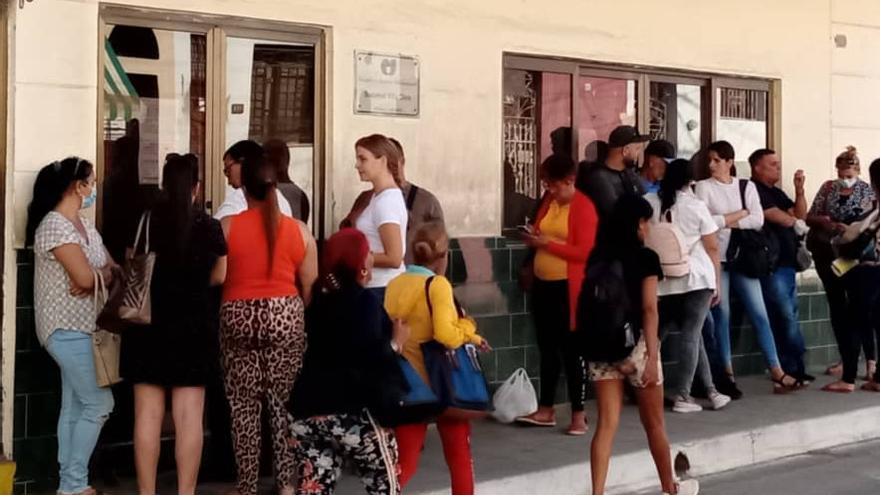
The situation is well known in the Ministry of Foreign Affairs, the institution that usually stamps the decisive stamp for a document to be valid beyond the Cuban borders. Imperturbable, the director of Consular Affairs Ernesto Soberón admitted the slowing down of all procedures and assured that his office was taking “the necessary measures to respond to the increase in demand for the service”. But actually, he didn’t promise anything.
The defenselessness of the Cubans who queue up in front of law firms, civil registries, and consultancies is the true drama. Conscious – some more than others – of how bogged down the process has become, they look for alternatives and perfect various “traps” to lighten the wait. But not everyone has the resources or the ability to navigate the obstacles with good luck.
“In Santa Clara,” explains the lawyer from the Camajuaní Collective Law Firm, “there are also thousands of documents on the waiting list to be sent to the Foreign Ministry. Until we get out of this delay, we will not restart the service,” he settled. However, another of the lawyers said that she had a recommendation: “Go early and with your identity card to the Santa Clara Legal Consultancy. Very early,” she insisted, “because the shifts are very limited and if you don’t have an appointment before April 3, they will close the doors until May”.
At five in the morning, Janet left her house, managed to “fish” a car, and went to the office, in the central Colón street in Santa Clara. Her heart sank at her feet when she saw that, barely dawning, she was already skirting the block with her tail, most of her to legalize. The consultancy started work at eight and, luckily, she Janet managed one of the shifts.
“When I manage to deliver the papers and sign the contract to legalize my documents, I will feel relief,” he says, knowing that he has only taken the first of many steps. “You have to live the day, otherwise we end up crazy.”
Once the document is deposited in the consultancy, the mechanism starts up again. The papers of the lucky ones who have signed their contracts will begin a bumpy journey to Havana and, if everything is in order, they will return to the provinces months later. Even with this delay, those who get their documents feel that the wait has paid off.
Once the document is deposited in the consultancy, the mechanism starts up again. The papers of the lucky ones who have signed their contracts will begin an eventful journey to Havana
Everything is very different when the lawyers themselves fail to comply with the clauses of the legalization contract, which in theory obliges them not to delay responding to clients for more than 45 days. The actual waiting period, which reaches six months – often the documents are already expired after the wait – far exceeds what is stipulated.
A few weeks ago, the director of the Legal Consultancy went to the queue herself and announced that it would no longer be possible to make an appointment in person. “At the end of April we will make the Ticket application available to users for all reservations,” she announced.
Several of the clients in the queue confronted the official with a barrage of additional questions: “Why don’t the collective law firms of the municipalities receive the documents to legalize? How did they change the processing process without an official notice being made? Why do they want to concentrate all the work here, if they don’t have the conditions?”
As if it were an article of faith, the director of the Consultancy referred to Soberón’s announcement, which “implied” that the rules of the game had changed due to the 16% increase in the demand for procedures at the Foreign Ministry with respect to 2022. “It is not in our hands,” he justified himself. “We do not move the documents, we limit ourselves to contracting the services.”
The department headed by Soberón supposedly accepts close to 1,000 documents a day, out of the 3,000 they receive on average. The number of pending papers is overwhelming, explains one of the Consultancy workers, and the slowness is aggravated because, in reality, the Foreign Ministry continues to accept the same as before, despite the official’s statements.
“Sometimes what takes the longest is the transfer of documents from the provinces to Havana, which is more difficult now due to the fuel crisis,” explains Fredy, a self-employed worker from Santa Clara. “The clients themselves have recommended that ways be found to expedite the process, ‘decentralization’ mechanisms for the Eastern and Central areas.”
The most viable solution so far is the one that seems least practical: travel to Havana. Both Janet and Fredy have been advised to rent a car and sign up for the waiting list of International Consultants and Lawyers (Conabi), International Legal Consulting or Claim, a company dedicated to the protection of intellectual property among whose functions are the legalization procedures. You can also go to a Collective Law Firm in the capital or in Transconsul.
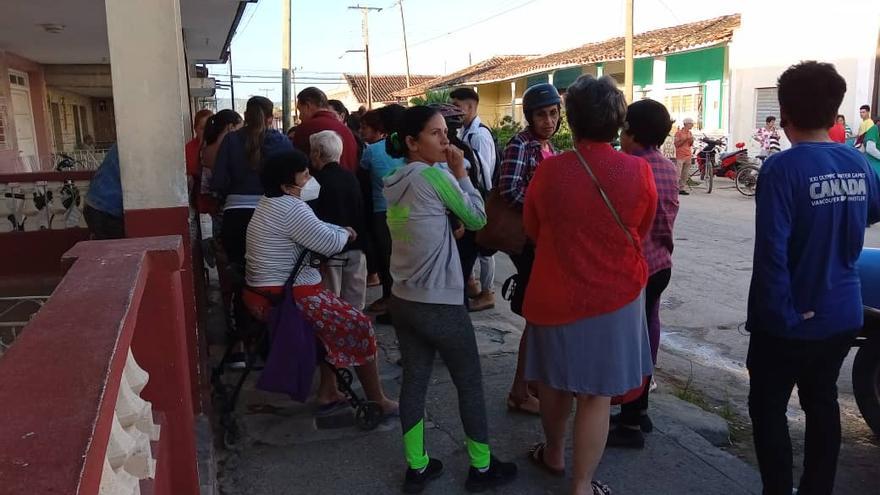
That was what Claudia did, a 24-year-old from Villa Clara who was demanded legalization at the Spanish Embassy in Havana. “I sent to legalize in January for legal advice and I’m still waiting. In order not to miss the appointment at the Consulate, I had to request the validity of my parents’ marriage, get an appointment through a friend of my uncle and go to the capital to legalize with Transconsul. There it was a little faster, 50 days or so,” he calculates.
In addition to the travel costs – in most of these institutions you have to take appointments in person –, you have to take into account the rules and particularities of each center. Going to Havana does not end the queues, the applications that work badly and the phones that, when trying to get a consultation, are always busy.
“Actually, the law firms there are at the level of those in the provinces,” denounces Amelia, skeptical of the “technique” of traveling to the capital. “I had to get my daughter’s birth certificate. Every week I send an uncle of mine who lives in the capital to ask about the process. They tell him that they will call him when it is ready and that he should keep waiting.”
Another of the most frequent exits is the illegal route. Dubiel, a 23-year-old from Santa Clara who tried several times to solve his problem with an appointment in Claim, hired a “salesman” of shifts. The price of the management was 5,000 pesos, to which was added the payment of the trip by car, some 22,000 additional pesos.
Dubiel, a 23-year-old from Santa Clara who tried several times to solve his problem with an appointment at Claim, hired a shift “salesman.” The price of the management was 5,000 pesos
“My family, who lives in the United States, sent me dollars. I sold them on the street and that’s how I was able to pay for the trip. I was in a hurry and I couldn’t afford to keep up with the Villa Clara law firms,” he explains. . The contact of the subject who facilitated the appointment found him in a Facebook group.
Others offer, in private mail, the legalization of the document within a period of 30 days, provided that 50 euros are paid for each procedure, in addition to a 500-peso stamp. “Apparently, it is a business with the Foreign officials themselves,” says Dubiel.
It is hoped that digital processing, through state applications, will help to eliminate the “bottleneck” of documents, but in reality it has complicated the panorama. “Due to the lack of stamps, the client can pay the tax on the document in cash or through an electronic commerce platform. If the physical stamp is brought, we send it together with the document. Otherwise, the amount of digitally. There is no problem,” says another of the Santa Clara Consulting lawyers, conciliatory.
With so many obstacles and in the face of a migratory exodus that has not stopped for months, the discontent is growing. “After so much exhaustion queuing at the civil registries, there are people who have delivered documents from December and January, in law firms and consultancies they do not give a sign. That is why they had to pay and it is not cheap, it is a lack of respect,” exploded Maribel, a Santa Clara housewife bent on achieving Spanish citizenship through the Democratic Memory Law.
“If they really wanted to end this situation, they should open new branches suitable for legalization services in the provinces,” he says, insulting Soberón’s statements. “It’s no secret to anyone that people are already desperate.”
________________________
Collaborate with our work:
The team of 14ymedio He is committed to doing serious journalism that reflects the reality of deep Cuba. Thank you for accompanying us on this long road. We invite you to continue supporting us, but this time becoming a member of our newspaper. Together we can continue transforming journalism in Cuba.
